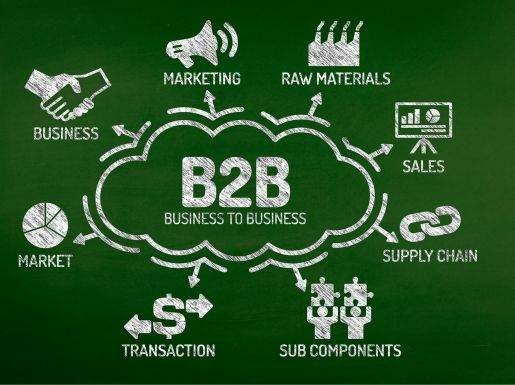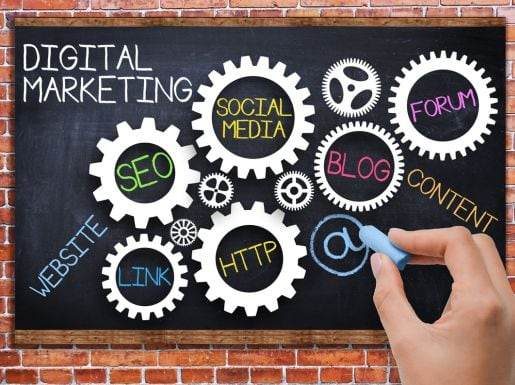Unlock the Potential: Effective B2B Manufacturing Marketing Strategies

Robert Connor
Last Updated July 8, 2024
Introduction
Unlocking the potential of effective B2B manufacturing marketing strategies requires a comprehensive understanding of the industry landscape, consumer behavior, and the latest marketing trends. By crafting compelling content, leveraging digital platforms, and nurturing strong customer relationships, manufacturers can position themselves as industry leaders and drive sustainable growth.
With a data-driven approach, targeted advertising, and strategic partnerships, companies can maximize their reach and impact in the competitive B2B space. Embracing innovation, adapting to changing market dynamics, and staying ahead of the curve are essential elements in developing and implementing successful B2B marketing strategies for manufacturing businesses.
- Understanding the B2B Manufacturing Market
- Developing Your B2B Marketing Strategy
- Leveraging Digital Marketing for Manufacturers
- Content Marketing Strategies for B2B Manufacturers
- Integrating Sales and Marketing for Comprehensive Growth
- Redefining Your B2B Manufacturing Marketing with Innovation
- Conclusion:
- FAQ'
,
,
Understanding the B2B Manufacturing Market
 Understanding the B2B manufacturing market is essential for businesses looking to thrive in this industry. By gaining insights into the unique dynamics and challenges of B2B manufacturing, companies can tailor their marketing strategies to effectively reach potential clients and generate leads.
We delve into the intricacies of this market, providing proven tactics to help businesses capitalize on opportunities and drive growth. Whether you're an experienced marketer or new to the industry, this comprehensive guide will equip you with the knowledge and tools needed to navigate the B2B manufacturing landscape with confidence and success.
Understanding the B2B manufacturing market is essential for businesses looking to thrive in this industry. By gaining insights into the unique dynamics and challenges of B2B manufacturing, companies can tailor their marketing strategies to effectively reach potential clients and generate leads.
We delve into the intricacies of this market, providing proven tactics to help businesses capitalize on opportunities and drive growth. Whether you're an experienced marketer or new to the industry, this comprehensive guide will equip you with the knowledge and tools needed to navigate the B2B manufacturing landscape with confidence and success.
Identifying Key Market Trends in B2B Manufacturing
Unveiling the latest market trends in B2B manufacturing is crucial for businesses seeking sustained success. Our guide offers comprehensive insights and analysis, empowering you to adapt your strategies for maximum impact and growth. Identifying key market trends in B2B manufacturing is essential for businesses to stay competitive and make informed strategic decisions. In today's rapidly evolving landscape, staying ahead of market trends can mean the difference between success and stagnation. By closely monitoring and analyzing market trends, businesses can adapt their operations, product offerings, and marketing strategies to align with current demands and opportunities. One key market trend in B2B manufacturing is the increasing focus on sustainability and eco-friendly practices. Many businesses are prioritizing sustainable sourcing, production processes, and packaging to meet the growing demand for environmentally conscious products. This trend presents an opportunity for manufacturers to differentiate themselves in the market and appeal to customers who are increasingly prioritizing sustainability in their purchasing decisions. Another important trend is the adoption of advanced technologies, such as automation, artificial intelligence, and IoT (Internet of Things), in manufacturing processes. These technologies can streamline operations, improve efficiency, and enable predictive maintenance, ultimately leading to cost savings and enhanced productivity. Embracing these technological advancements can give B2B manufacturers a competitive edge and position them as industry leaders. Furthermore, the shift towards customization and personalization in B2B manufacturing is a significant trend to consider. With the rise of e-commerce and digital platforms, customers are increasingly seeking tailored solutions to meet their specific needs. B2B manufacturers can capitalize on this trend by offering customizable products, flexible ordering options, and personalized customer experiences, ultimately fostering stronger relationships and long-term partnerships with clients. In addition, the globalization of supply chains and the increasing importance of global trade are shaping the B2B manufacturing landscape. Businesses are navigating complex international trade policies, tariffs, and geopolitical dynamics, all of which impact sourcing, production, and distribution strategies. Understanding these global market trends is crucial for B2B manufacturers to effectively manage supply chain risks and capitalize on new opportunities in diverse markets. Overall, staying abreast of key market trends in B2B manufacturing is vital for businesses to remain agile, innovative, and responsive to evolving customer needs and industry dynamics. By leveraging these insights and adapting their strategies accordingly, B2B manufacturers can position themselves for sustained success and growth in the competitive marketplace.Understanding the Unique Needs of B2B Buyers
In order to fully understand the specific requirements of B2B buyers in the manufacturing sector, companies need to explore the complex dynamics and obstacles that influence this market. Our extensive guide provides you with practical measures and established techniques to customize your marketing approaches successfully, promoting growth and achievement. Whether you're an experienced marketer or a newcomer to the industry, this resource offers invaluable knowledge and enables you to navigate the B2B manufacturing landscape with assurance.The Role of Digital Transformation in the Manufacturing Industry
Digital transformation is revolutionizing the manufacturing industry, reshaping traditional processes, and paving the way for unprecedented efficiency and innovation. Adopting digital technologies empowers manufacturers to optimize operations, enhance productivity, and respond swiftly to market demands, driving substantial growth and competitive advantage.
,
,
,
,
Developing Your B2B Marketing Strategy
Developing a B2B marketing strategy requires a deep understanding of the target industry, its specific challenges, and the key decision-makers involved. In the case of the manufacturing industry, businesses should focus on creating content and messaging that resonates with the needs and pain points of manufacturing companies.
This may include highlighting the efficiency, cost-effectiveness, and reliability of products or services, as well as emphasizing the potential for improved productivity and quality.
Leveraging digital marketing channels such as social media, email marketing, and content marketing can help businesses reach manufacturing professionals and decision-makers effectively.
In addition to tailoring messaging, businesses should also consider the use of industry-specific platforms and events to connect with potential clients. Trade shows, industry conferences, and online forums can provide valuable opportunities to showcase products and services, network with industry professionals, and gather insights into the evolving needs of the manufacturing sector.
A successful B2B marketing strategy in the manufacturing industry should prioritize relationship-building and personalized communication. Establishing strong, long-term partnerships with manufacturing clients requires a consultative approach, active listening, and a focus on providing tailored solutions to address specific challenges.
This may involve offering custom product demonstrations, providing in-depth industry insights, and delivering exceptional customer service to build trust and credibility.
Overall, a successful B2B marketing strategy in the manufacturing industry hinges on a combination of industry-specific knowledge, targeted messaging, strategic use of digital and traditional marketing channels, and a commitment to building lasting relationships with clients.
By understanding the unique dynamics of the manufacturing sector and aligning marketing efforts accordingly, businesses can position themselves for success in this competitive B2B landscape.
Aligning Marketing Goals with Business Objectives
Aligning marketing goals with business objectives is a pivotal aspect of achieving sustained success in the B2B manufacturing industry. Understanding the intricacies of this market and tailoring strategies accordingly can empower businesses to drive growth and achieve their desired outcomes. We provide comprehensive insights and actionable steps to facilitate this alignment, enabling companies to navigate the landscape with confidence and achieve their business objectives through strategic marketing endeavors.Key Components of a Successful B2B Marketing Plan
A successful B2B marketing plan relies on several key components, including thorough market research, a solid understanding of the target audience, compelling messaging, effective distribution channels, and a robust measurement and analysis strategy. In addition to the key components mentioned, a successful B2B marketing plan also incorporates a well-defined value proposition that clearly communicates the benefits of the product or service to the target audience. This value proposition should address the specific pain points and needs of the target market, and differentiate the offering from competitors. Effective lead generation and nurturing strategies are essential components of a successful B2B marketing plan. This involves identifying the most effective channels for reaching and engaging with potential clients, such as email marketing, content marketing, social media, and industry events. Once leads are generated, it's crucial to have a robust lead nurturing strategy in place to guide prospects through the buying journey and ultimately convert them into customers. A successful B2B marketing plan also emphasizes the importance of a strong sales enablement strategy. This involves equipping the sales team with the necessary tools, resources, and training to effectively communicate the value proposition and close deals. Sales and marketing alignment is key in ensuring that both teams are working towards the same goals and have a clear understanding of the target audience Ongoing measurement, analysis, and optimization are critical to the success of a B2B marketing plan. This includes tracking key performance indicators (KPIs), analyzing the effectiveness of different marketing initiatives, and using data to make informed decisions and continuously improve the marketing strategy. By regularly evaluating and adjusting the plan based on insights gathered from data, businesses can ensure that their B2B marketing efforts are driving results and contributing to overall business growth.Measuring the Effectiveness of Your Marketing Efforts
Measuring the effectiveness of your marketing efforts is crucial for evaluating the impact of your strategies and optimizing your approach for maximum results. By analyzing key performance indicators and metrics, businesses can gain valuable insights into the success of their marketing initiatives, allowing them to make data-driven decisions and refine their tactics accordingly. We provide comprehensive guidance on measuring marketing effectiveness, offering actionable steps and proven methodologies to help businesses gauge the impact of their efforts and drive sustained growth. This resource is designed to equip you with the knowledge and tools needed to evaluate and enhance the effectiveness of your B2B marketing endeavors.
,
,
,
,
Leveraging Digital Marketing for Manufacturers
 Leveraging digital marketing for manufacturers is essential in today's competitive landscape. With the increasing significance of online platforms, businesses in the manufacturing industry must adapt their marketing strategies to effectively reach their target audience and drive growth.
We delve into the intricacies of digital marketing, providing actionable steps and proven tactics to help manufacturers capitalize on digital transformation. This comprehensive guide equips you with the knowledge and tools needed to navigate the digital marketing landscape with confidence and success.
Leveraging digital marketing for manufacturers is essential in today's competitive landscape. With the increasing significance of online platforms, businesses in the manufacturing industry must adapt their marketing strategies to effectively reach their target audience and drive growth.
We delve into the intricacies of digital marketing, providing actionable steps and proven tactics to help manufacturers capitalize on digital transformation. This comprehensive guide equips you with the knowledge and tools needed to navigate the digital marketing landscape with confidence and success.
Optimizing Your Website for B2B Manufacturing Companies
Optimizing your website for B2B manufacturing companies involves several key strategies to ensure that your online presence effectively engages with potential clients and drives business growth. Here are some essential steps to consider: 1. Targeted Content: Tailor your website content to address the specific needs and pain points of B2B manufacturing companies. This may include providing in-depth information about your products or services, case studies, white papers, and industry-specific insights. 2. Search Engine Optimization (SEO): Implementing SEO best practices is crucial for ensuring that your website ranks well in search engine results. This involves optimizing your website structure, using relevant keywords, creating high-quality content, and building backlinks from reputable sources. 3. User Experience (UX) Design: A user-friendly website is essential for B2B manufacturing companies. Ensure that your website is easy to navigate, visually appealing, and optimized for both desktop and mobile devices. A seamless user experience can significantly impact customer engagement and conversion rates. 4. Lead Generation: Incorporate lead generation forms and calls to action throughout your website to capture potential leads from B2B manufacturing companies. Offering valuable resources such as industry reports or webinars in exchange for contact information can help build a robust sales pipeline. 5. Performance Optimization: Page load speed and overall website performance are critical factors in providing a positive user experience. Optimize your website's performance by reducing image sizes, utilizing caching, and investing in reliable hosting services. 6. Industry-Specific Blogging: Creating and regularly updating a blog with industry-specific content can position your website as a valuable resource for B2B manufacturing professionals. Share insights, trends, and best practices to establish thought leadership within the industry. 7. Social Proof and Testimonials: Incorporate customer testimonials, case studies, and industry certifications to build trust and credibility with B2B manufacturing companies visiting your website. Social proof can significantly influence purchasing decisions in the B2B sector. 8. Analytics and Tracking: Implement robust analytics tools to track website performance, user behavior, and lead generation metrics. Data-driven insights can help refine your website optimization strategies and identify areas for improvement. By implementing these strategies, B2B manufacturing companies can enhance their online presence, attract qualified leads, and ultimately drive business growth through their website.Key Components of a Successful B2B Marketing Plan
Embracing social media marketing in the manufacturing sector is essential for staying competitive and reaching a broader audience. By leveraging platforms like LinkedIn and Twitter, businesses can engage with potential clients and showcase their expertise, ultimately driving growth and success. Whether you're new to social media marketing or looking to enhance your strategies, understanding the unique dynamics of the manufacturing sector is crucial for effectively utilizing these platforms. We look into the intricacies of social media marketing, providing actionable steps and proven tactics tailored specifically for manufacturers. This all-inclusive guide is designed to provide you with the expertise and resources necessary to confidently navigate the social media environment and attain measurable outcomes.Incorporating Email Marketing and Marketing Automation
Incorporating email marketing and marketing automation can significantly enhance your B2B manufacturing marketing strategy. By leveraging targeted email campaigns and automated processes, you can effectively engage potential clients and streamline your marketing efforts, ultimately driving growth and success.
,
,
,
,
Content Marketing Strategies for B2B Manufacturers
When it comes to content marketing strategies for B2B manufacturers, a comprehensive approach is crucial for effectively reaching and engaging your target audience. This entails crafting informative and compelling content that not only showcases your expertise and offerings but also addresses the specific pain points and challenges of your potential clients.
By leveraging a mix of written, visual, and interactive content, you can create a robust content marketing strategy that resonates with B2B buyers and positions your brand as a valuable resource in the industry.
Additionally, utilizing data-driven insights and analytics can help refine your content strategy, ensuring that it aligns with the evolving needs and preferences of your audience.
Creating Engaging Content for Manufacturing Audiences
Creating engaging content for manufacturing audiences is a multifaceted endeavor that requires a deep understanding of industry dynamics and audience preferences. From insightful articles to captivating visuals, the content should resonate with the target audience, providing valuable information and fostering meaningful connections. Whether you're focusing on thought leadership pieces or showcasing product innovations, the key lies in crafting content that not only educates but also captivates, driving engagement and ultimately contributing to the growth of your manufacturing business.Utilizing Case Studies and Testimonials to Build Credibility
Utilizing case studies and testimonials to build credibility is a crucial aspect of establishing trust and showcasing the real-world impact of your products or services. By presenting compelling stories of success and satisfaction, businesses can demonstrate their value and reliability to potential clients, ultimately driving growth and success. Whether you're new to leveraging case studies and testimonials or looking to enhance your current strategies, understanding the power of these narratives is essential for establishing credibility in the B2B manufacturing industry. We look into the intricacies of utilizing case studies and testimonials, offering actionable steps and proven tactics tailored specifically for manufacturers. This comprehensive guide aims to equip you with the knowledge and tools needed to effectively harness the persuasive power of real-life experiences, fostering credibility and driving tangible results.How to Drive Conversion with Product or Service-Focused Content
When it comes to driving conversion with product or service-focused content in the B2B manufacturing industry, businesses must tailor their strategies to effectively showcase the value and benefits of their offerings. From detailed product descriptions to compelling service overviews, the content should captivate potential clients, instilling confidence and prompting action. Regardless of your level of experience in marketing, our in-depth guide provides you with the necessary knowledge and resources to develop compelling content that boosts conversion rates and supports the expansion of your manufacturing enterprise.
,
,
,
,
Integrating Sales and Marketing for Comprehensive Growth
 Integrating sales and marketing for comprehensive growth in the B2B manufacturing industry is an important strategy for driving sustained success. By aligning sales efforts with marketing initiatives, businesses can create a cohesive approach that effectively reaches potential clients, nurtures relationships, and ultimately drives conversion.
From leveraging customer insights to crafting targeted campaigns, the integration of sales and marketing empowers companies to capitalize on opportunities and maximize their impact in the market.
We look into the intricacies of integrating sales and marketing, providing actionable steps and proven tactics tailored specifically for manufacturers.
Whether you're a seasoned marketer or new to the industry, this comprehensive guide will equip you with the knowledge and tools needed to effectively align sales and marketing efforts, fostering comprehensive growth and tangible results.
Integrating sales and marketing for comprehensive growth in the B2B manufacturing industry is an important strategy for driving sustained success. By aligning sales efforts with marketing initiatives, businesses can create a cohesive approach that effectively reaches potential clients, nurtures relationships, and ultimately drives conversion.
From leveraging customer insights to crafting targeted campaigns, the integration of sales and marketing empowers companies to capitalize on opportunities and maximize their impact in the market.
We look into the intricacies of integrating sales and marketing, providing actionable steps and proven tactics tailored specifically for manufacturers.
Whether you're a seasoned marketer or new to the industry, this comprehensive guide will equip you with the knowledge and tools needed to effectively align sales and marketing efforts, fostering comprehensive growth and tangible results.
Strategies for Aligning Sales and Marketing Teams
Strategies for aligning sales and marketing teams are essential for driving comprehensive growth in the B2B manufacturing industry. By fostering synergy between these two crucial functions, businesses can create a cohesive approach that effectively reaches potential clients, nurtures relationships, and ultimately drives conversion. From leveraging customer insights to crafting targeted campaigns, the integration of sales and marketing empowers companies to capitalize on opportunities and maximize their impact in the market. We provide comprehensive insights and actionable steps to facilitate this alignment, enabling companies to navigate the landscape with confidence and achieve their business objectives through strategic marketing endeavors.Utilizing CRM Tools to Bridge the Gap Between Sales and Marketing
In the fast-paced world of business, the integration of CRM tools has become essential for bridging the gap between sales and marketing. By leveraging these powerful tools, companies can streamline processes, improve communication, and gain valuable insights into customer behavior. CRM tools enable sales and marketing teams to work collaboratively, ensuring that leads are effectively nurtured and converted into loyal customers. With features such as lead scoring, pipeline management, and automated marketing campaigns, CRM tools empower organizations to align their sales and marketing efforts seamlessly. The result is improved efficiency, enhanced customer experiences, and ultimately, a positive impact on the bottom line.
,
,
,
,
Redefining Your B2B Manufacturing Marketing with Innovation
Redefining your B2B manufacturing marketing with innovation is a transformative endeavor that demands a comprehensive understanding of industry dynamics and an unwavering commitment to adaptability. In a landscape shaped by digital transformation and evolving buyer behaviors, businesses must embrace innovation to effectively reach their target audience and drive sustained growth.
We equip you with actionable steps and proven methodologies to navigate this paradigm shift, leveraging digital marketing, optimizing your website, embracing social media, and incorporating email marketing and automation to redefine your approach with innovation. This extensive guide is designed to equip you with the expertise and resources required to spearhead groundbreaking marketing strategies and accomplish measurable outcomes.
The Importance of a Responsive Marketing Team to Market Dynamics
In the dynamic landscape of marketing, the importance of a responsive marketing team cannot be overstated. As market dynamics continue to evolve, businesses in the manufacturing industry must ensure their marketing teams are adaptable and agile. By promptly identifying and capitalizing on emerging trends, a responsive marketing team can effectively reach target audiences and drive sustained growth. Through strategic collaboration and continuous learning, marketing teams can stay ahead of the curve, leveraging innovative tactics to navigate the ever-changing marketing landscape with confidence and success.How to Continuously Improve and Innovate in B2B Marketing
In the realm of B2B marketing, continuous improvement, and innovation are paramount for staying ahead of the curve. Embracing cutting-edge strategies while fostering a responsive marketing team is essential to navigate the ever-changing landscape with confidence and success. By exploring innovative digital marketing approaches and leveraging data-driven insights, businesses can redefine their marketing strategies, ultimately achieving tangible results.
,
,
,
,
Conclusion:
The strategies outlined in "Unlock the Potential: Effective B2B Manufacturing Marketing Strategies" provide a comprehensive framework for navigating the dynamic landscape of B2B marketing. From leveraging innovative digital marketing approaches to aligning sales and marketing efforts, this resource equips you with actionable steps and proven methodologies to achieve tangible results.
Embracing continuous improvement and innovation while fostering a responsive marketing team is essential for staying ahead of the curve and driving sustained growth in the ever-evolving B2B manufacturing industry.
,
,




